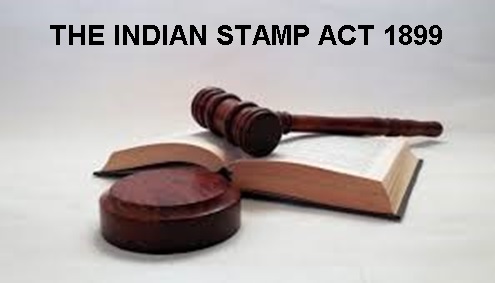The right to nominate a person to whom securities of a company will vest upon the death of the holder of such securities is provided in the Companies Act, 2013 (the Act) under Section 72. The erstwhile Companies Act, 1956 under Section 109A (vide Companies (Amendment) Act, 2000) provided for the first time a provision for designating a nominee. One can see that the provisions of Section 72 of the Act is verbatim the same as Section 109A of the erstwhile Act with the only difference is that under Section 72, the term “securities” replaces the terms “shares and debentures” used in Section 109A.
A major question that arises in law is “what is the legal effect of such nomination and whether such nomination can deny the rights of legal heirs upon the death of the holder of securities.” This question was answered in many cases and notably by the Supreme Court (SC) under different contexts.
In Sarabati Devi & Another v. Smt.Usha Devi [SC 1984 AIR 346] the SC had to consider the question of nomination and its effect in terms of succession law and rights of legal heirs thereto under the Insurance Act, 1938. The crux of the issue in this case is that, the Assured under a life insurance dies intestate and had nominated his wife as sole nominee and the question that arose is whether the nominee of the insurance policy post the death of the Assured intestate would become entitled to the beneficial interest in the amount received under the policy to the exclusion of legal heirs as per Section 39 of the Insurance Act, 1938. The said Section 39 expressly provided that if the nominee(s) survives the person whose life is insured, the amount secured by the policy shall be payable to such survivor(s). The SC held as under:
“that a mere nomination made under section 39 of the Act does not have the effect of conferring on the nominee any beneficial interest in the amount payable under the life insurance policy on the death of the assured. The nomination only indicates the hand which is authorised to receive the amount, on the payment of which the insurer gets a valid discharge of its liability under the policy, the amount, however, can be claimed by the heirs of the assured in accordance with the law of succession governing them.”
Hence, even in respect of nomination clause in insurance contracts and despite the provisions of Section 39 of Insurance Act, 1938, the nomination does not entitle the nominee to the benefits of the insurance policy, unless, the nominee is also a legal heir subject to there being other legal heirs.
The SC encountered the same query as to the rights of the nominee vis-à-vis the legal heirs in World Wide Agencies Private Limited and others v. Mrs.Margret T. Desor and others [SC 1990 AIR 737]. In this case the context is with reference to right of the nominee of shares (not being a registered member) to file a petition under Section 397/398 of the Companies Act, 1956. The SC while deciding the case remarked that a “member” may be a “holder” of shares but a “holder” of shares may not be a “member” and held as under:
“It appears to us that to hold that the legal representatives of a deceased shareholder could not be given the same right of a member under ss. 397 and 398 of the Act would be taking a hyper-technical view which does not advance the cause of equity or justice. The High Court in its judgment under appeal proceeded on the basis that legal representatives of a deceased member represent the estate of that member whose name is on the register of members. When the member dies, his estate is entrusted in the legal representatives. When, therefore, these vestings are illegally or wrongfully affected, the estate through the legal representatives must be enabled to petition in respect of oppression and mismanagement and it is as if the estate stands in the shoes of the deceased member. We are of the opinion that this view is a correct view. It may be mentioned in this connection that succession is not kept in abeyance and the property of the deceased member vests in the legal representatives on the death of the deceased and they should be permitted to act for the deceased member for the purpose of transfer of shares under s. 109 of the Act.”
The Bombay High Court in Shakti Yesdani & Another v. Jayanand Jayant Salgoankar [https://indiankanoon.org/doc/90095408] referred to the provisions relating to nomination under various enactments and decisions of Supreme Court where such provisions have been interpreted and held as under:
“the nominee does not get absolute title to the property which is subject matter of the nomination. The reason is by its very nature, when a shareholder or a deposit holder or an insurance policy holder or a member of a Co-operative Society makes a nomination during his life time, he does not transfer his interest in favour of the nominee. It is always held that the nomination does not override the law in relation to testamentary or intestate succession. The provisions regarding nomination are made with a view to ensure that the estate or the rights of the deceased subject matter of the nomination are protected till the legal representatives of the deceased take appropriate steps….
The SC held that the object of the provisions of the Companies Act is not to either provide a mode of succession or to deal with succession. The object of the Section 109A is to ensure that the deceased shareholder is represented by someone as the value of the shares is subject to market forces. Further, SC held that the provision is enacted to ensure that the commerce does not suffer due to delay on the part of the legal heirs in establishing their rights of succession and claiming the shares of a Company.
Recently, the National Company Law Appellate Tribunal (NCLAT) in the matter of Oswal Greentech Ltd. V. Pankaj Oswal & Ors (decided on 14th November, 2019) encountered an appeal on the order of the National Company Law Tribunal (NCLT), Chandigarh Bench on similar question as was in World Wide Agencies case (supra) being whether the legal heir (not being the nominee of shares) has the right to petition under Section 241 of the Act and whether such nominees can be considered as eligible persons under Section 244 to apply under Section 241. The brief facts of the case is that upon the death of one Mr. Abhey Kumar Oswal his wife and appointed nominee Mrs.Aruna Oswal was registered as the member by transmission of all the shares that Mr.Abhay Kumar Oswal held. Mr.Pankaj Oswal son of late Mr.Abhey Kumar Oswal and Mrs.Aruna Oswal filed petition under Section 241 alleging certain acts of oppression and mismanagement on the ground that he is entitled to 1/4th share of the estate (including the shares) of the deceased and hence is entitled to petition in terms of Section 244 of the Act. The NCLT did not agree to the opposition of the respondents to admit the petition of Mr.Pankaj Oswal, on the ground that he is not a registered member. Hence, the Respondents went on appeal.
The NCLAT while considering the ratio of the aforesaid SC judgements, dismissed the appeals and held as under:
“The right arising out of an instrument does not vest with nominee automatically on the death of the original holder of the instrument. Nominee does not mean that the amount or the share belongs to the nominee. On the death of the holder of the instrument, the amount/ share vests with the legal heirs, the nominee merely holds the amount/ share herein till the matter of vesting is decided in favour of the legal heirs.”
Thus, it is important to understand that nomination per se does not vest title or ownership of securities on the nominee upon the death of the holder of the securities. The nominee (unless he or she is also the sole legal heir) is only a fiduciary whom the holder of shares has nominated to hold the securities and hand over the same to the legal heirs upon the death of such holder. Intent of the nomination is to vest the property in shares or any other right or claim in the hands of the nominee and not to confer absolute title. The provisions of law as regards nomination is only to enable the estate or the rights of the deceased are protected till the legal heirs of the deceased take appropriate steps to claim it.
Hence, companies / Registrar and Transfer Agents (RTA) while encountering applications by nominee(s) to register the securities in his / her / their name upon the death of the original holder, should apply due diligence to establish the fact that the applicant nominee(s) are the only legal heirs. If the nominee could not prove that he or she is a legal heir, then the company or RTA should either reject the transmission of securities or issue notice to the legal heirs (if known).
Hence nomination made under enabling provisions of various law does not override law relating to testamentary succession or intestate succession.







